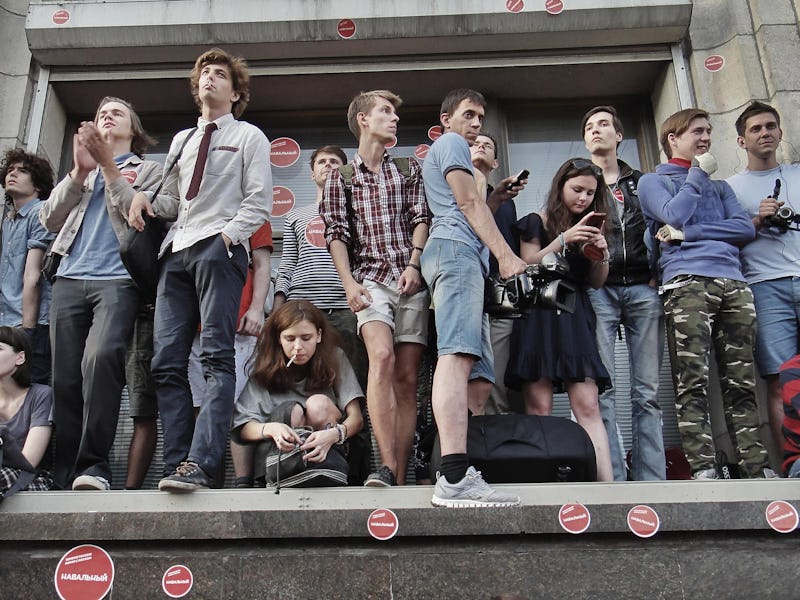The Only Good Thing About the Russian Government's Protest-Predicting Program Is That It Probably Doesn't Exist
A pre-cog app dubbed 'Laplace's Demon' is intended to chill free speech online, and it doesn't need to work to succeed.

The Center for Research in Legitimacy and Political Protest, a Russian government organization with strong ties to Putin, announced yesterday that it has developed software that prevents “mass disorder” by searching through social media for postings related to unauthorized demonstrations. The announcement caused much facepalming among Russia watchers concerned about the Kremlins increasingly aggressive treatment of activists, but should probably have triggered more head scratching. If the program, which some are calling “Laplace’s Demon” after scientific determinist Pierre-Simon Laplace all-seeing machine, was real, the CRLPP would have little cause to tell non-law enforcement or government officials about it, but telling protestors about it means it will serve its purpose whether or not it actually exists.
Circular reasoning is fun.
Fundamentally, the Demon is an effort to crack down on Twitter, Facebook, LiveJournal (still a thing over there) and Vkontakte, a massive Russian social network that has long been viewed with suspicion by Putin. Last year, the company’s founder Pavel Durov, was ousted from the company, presumably after he refused to share user information with the Russian Federal Security Service. Durov left Russia and sent back a pull quote: “The country is incompatible with Internet business at the moment.”
Whether or not the Demon actually exists or is just some Bulgakovian figment dreamt up to frighten the sort of children who think homosexuals deserve rights doesn’t ultimately matter that much. The CRLPP may see this as a Putin-esque flexing of technological muscle, but the program being described is not particularly advanced. Scraping social media sites is not difficult and doesn’t pass the laugh test as a pre-cog approach to law enforcement. That said, the announcement is absolutely evidence that Russia remains committed to limiting the power of the Internet and, through it, the expansion of free speech.
Here’s a little pre-cog action: Not gonna work.